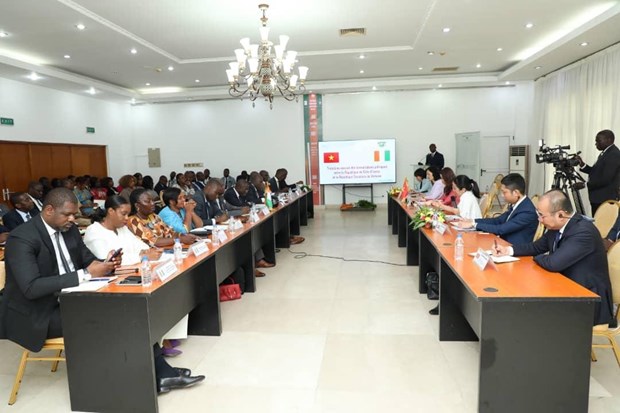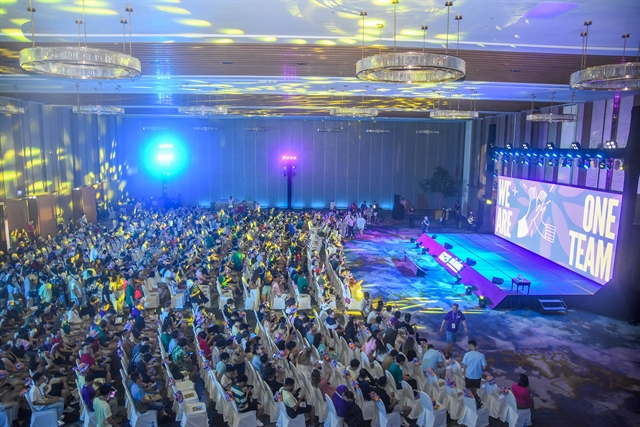

.jpg)
|
| Staff members conduct disinfection operation in the main building of the South Korean National Assembly in Seoul, South Korea on Tuesday. — XINHUA/VNA Photo |
SEOUL — South Korea's new coronavirus cases topped 1,100 on Wednesday morning and the health authorities started testing about 210,000 followers of a religious sect at the center of rapid infections here.
The 169 additional cases brought the total cases to 1,146 from only 51 a week ago, according to the Korea Centre for Disease Control and Prevention (KCDC).
So far, 12 people have died in South Korea from the new virus that emerged in China, including a 73-year-old Korean man who was a follower of the religious sect in the southeastern city of Daegu and a 36-year-old Mongolian national who was hospitalised for a liver transplant here.
The number of new cases is expected to jump in the coming days as health authorities began testing members of the Shincheonji Church of Jesus at the centre of the rapid spread in other provinces.
The US military in South Korea also said one of its soldiers tested positive for the new coronavirus, becoming the first US soldier infected here.
About 80 per cent of confirmed cases came from two clusters of infections - at a branch of Shincheonji Church in Daegu and a hospital in the neighboring county of Cheongdo.
Of the 169 new cases, 153 are in Daegu, 300 kilometres southeast of Seoul, and neighboring North Gyeongsang Province. Daegu counted 134 new cases and North Gyeongsang reported 19 more cases.
Other major provinces and cities have also reported some infections, with Seoul reporting another four cases, the KCDC said in a statement.
Busan, South Korea's second-largest city, reported eight new cases and Gyeonggi Province reported one new case on Wednesday morning, the KCDC said.
Since raising the virus alert level to "red," the highest level, on Sunday, health authorities have focused on halting the spread of the virus in Daegu, the epicentre of the virus outbreak here, and North Gyeongsang Province.
South Korea confirmed its first new coronavirus case from a Chinese woman from Wuhan, the epicentre of the virus outbreak, on Jan. 20, but the pace of infections had not been alarming until February 17, when a 61-year-old woman who is tied to the Daegu religious sect tested positive for the virus. It is still unclear how the woman was infected with the virus.
People are being asked to avoid non-essential meetings and work at home, with various sports events, concerts and public gathering canceled. All schools delayed their start of the spring semester by a week to March 9.
With untraceable virus infections emerging in other major cities, including Busan and Seoul, concerns are growing over new clusters of infections.
Jun Byung-yool, a professor of preventive medicine at the Cha University Graduate School of Medicine, said the new coronavirus is spreading faster than the 2009 outbreak of H1N1 swine flu, which triggered local transmission here about 70 days after the first case was confirmed.
"Although it is invisible, local transmission of COVID-19 is occurring," Jun said.
South Korea has released 22 fully recovered novel coronavirus patients from hospitals as of Tuesday morning, the KCDC said.
The number of people being checked for the virus and under quarantine came to 16,734, it added. The country has tested a total of 44,981 suspected cases, with 28,237 testing negative. — YONHAP









